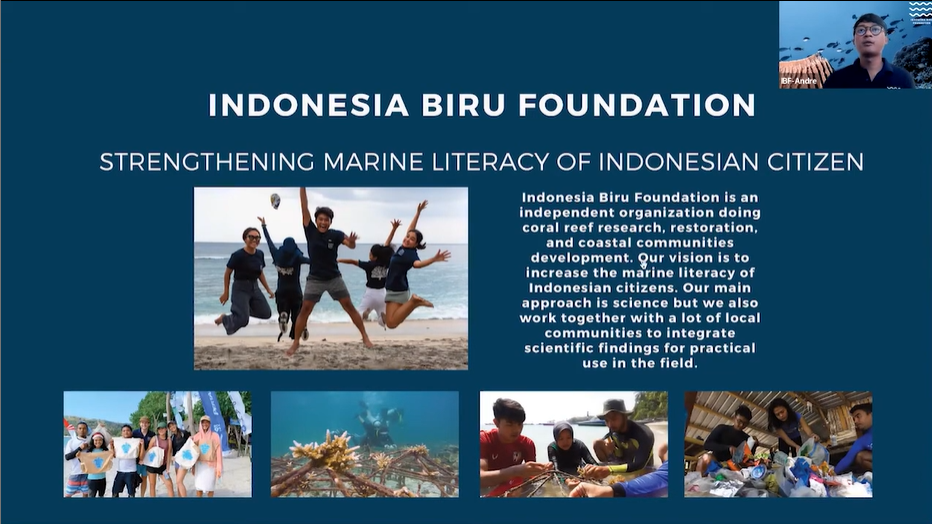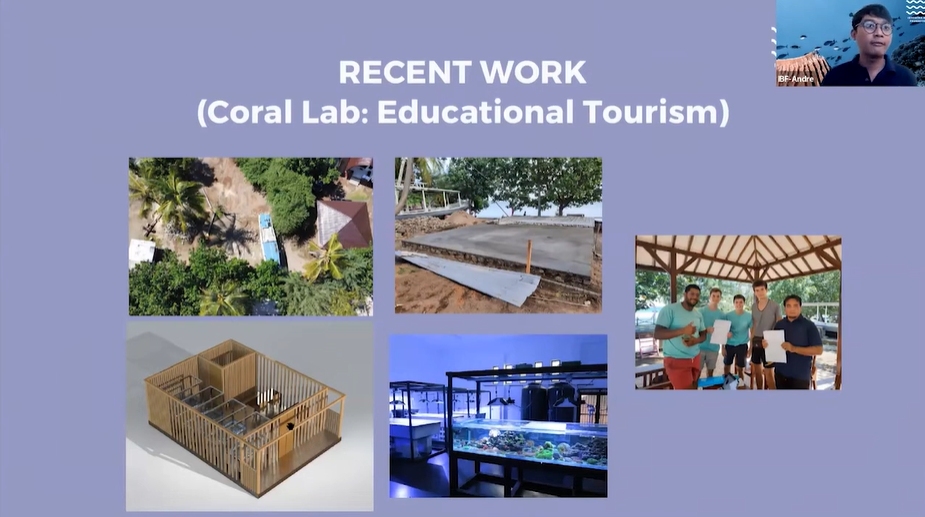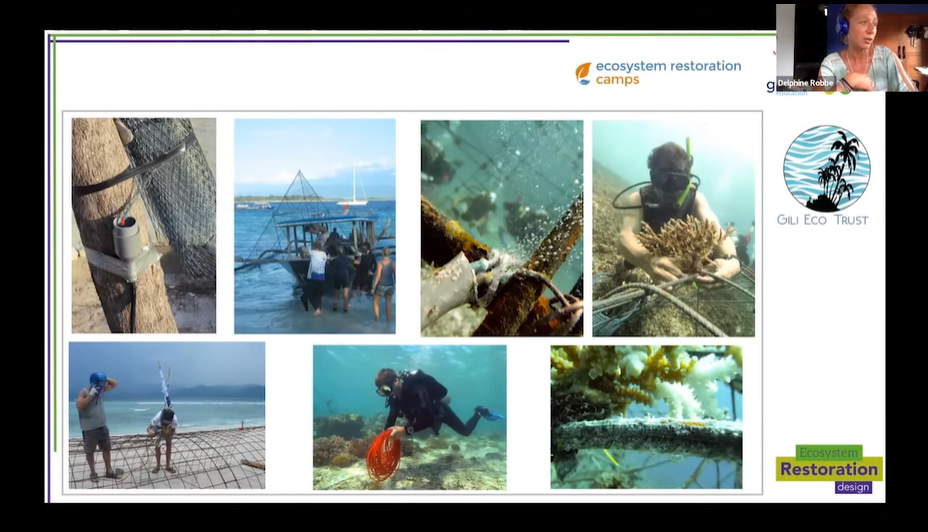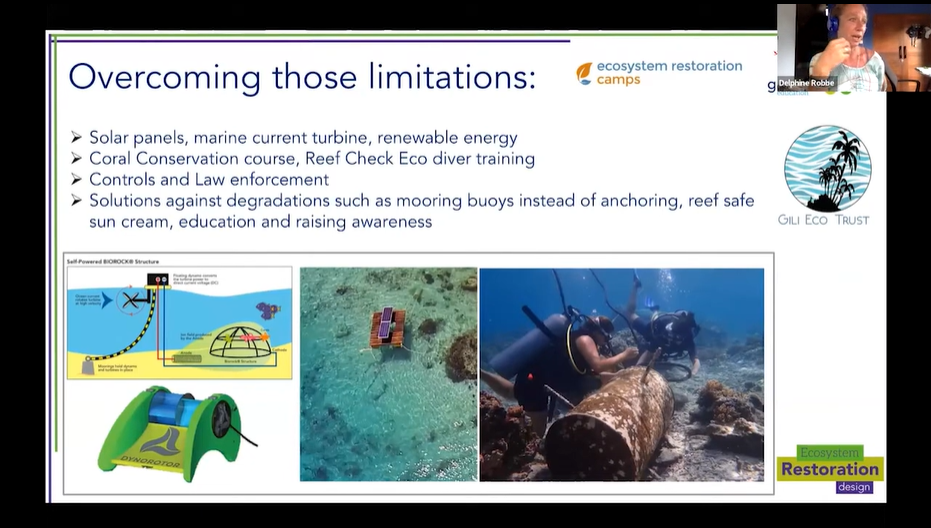Indonesia – In the inaugural session of SCORES (School of Coral Reef Restoration), practitioners and researchers from across the archipelago gathered virtually to share on-the-ground experiences in restoring coral reefs. The webinar featured two restoration practitioners, Andre from the Indonesia Biru Foundation and Delphine Robbe from Gili Eco Trust, whose community-based approaches offer valuable insights into what makes reef restoration efforts effective and inclusive.


Reefs Recovered Through Community Power
Andre, founder of the Indonesia Biru Foundation, shared how his organization emerged during the COVID-19 pandemic as a grassroots initiative by local divers and environmental enthusiasts. His foundation focuses on coral restoration, marine literacy, and creating integrated social-ecological solutions. To assess reef conditions, the team developed a Coral Health Index and adopted photogrammetry techniques to track habitat recovery visually.
A significant innovation is their Coral Lab in Kecinan Bay, Lombok—a land-based education and coral nursery facility. Collaborations with research institutions and local communities were highlighted as central to scaling efforts and embedding citizen science and AI into reef monitoring.
“The real asset is that people from the village can dive and care for their reef. That’s where restoration becomes lasting.”


Engineering Resilience in the Gili Islands
Delphine Robbe from Gili Eco Trust outlined her organization’s two-decade journey in protecting reefs around the Gili Islands. Since 2001, the Trust has employed Biorock technology—metal reef structures powered by low-voltage electricity—to accelerate coral growth and resilience against bleaching. This is complemented by a low-cost coral propagation approach adopted from Ocean Quest’s training, where coral fragments are transplanted to nursery structures.
Regular monitoring uses the Reef Check method, evaluating substrate, fish, invertebrates, and coral damage. Delphine emphasized that maintenance is crucial: daily monitoring, predator removal, and righting overturned coral are part of the team’s routine. Collaborations span dive shops, government agencies, and schools, with alternative energy solutions like solar panels supporting the initiative in electricity-scarce areas.
Navigating Challenges Together
During the discussion, both speakers acknowledged that coral rubble accumulation remains a major obstacle in reef slope recovery. The community agreed that restoration must be gradual—starting from shallow zones to ensure stability. Participants highlighted successful examples such as the Mars Reef Stars, where strong site selection and local stewardship were key.
When asked about the balance between ecological function and tourism goals, Andre noted:
“We need to be honest about our goals. If it’s just for tourism, that’s fine. But let’s not call it ecological restoration unless we are measuring ecosystem function.”
